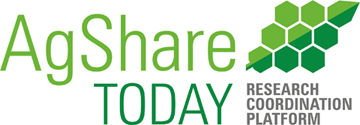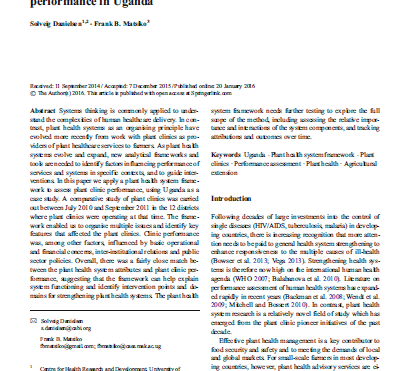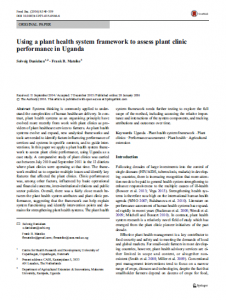Systems thinking is commonly applied to understand the complexities of human healthcare delivery. In contrast, plant health systems as an organising principle have evolved more recently from work with plant clinics as providers of plant healthcare services to farmers. As plant health systems evolve and expand, new analytical frameworks and tools are needed to identify factors influencing performance of services and systems in specific contexts, and to guide interventions. In this paper we apply a plant health system framework to assess plant clinic performance, using Uganda as a case study. A comparative study of plant clinics was carried out between July 2010 and September 2011 in the 12 districts where plant clinics were operating at that time. The framework enabled us to organise multiple issues and identify key features that affected the plant clinics. Clinic performance was, among other factors, influenced by basic operational and financial concerns, inter-institutional relations and public sector policies. Overall, there was a fairly close match between the plant health system attributes and plant clinic performance, suggesting that the framework can help explain system functioning and identify intervention points and domains for strengthening plant health systems. The plant health system framework needs further testing to explore the full scope of the method, including assessing the relative importance and interactions of the system components, and tracking attributions and outcomes over time.
Region: Uganda
Date published:
2016
Published by:
Food Security
Type of resource:
Journal article
Resource topic:
Plant clinics
Project/Programme: Not specific
Pest/Disease: Not specific
Pages:
15
File type:
External link (690 KB)




